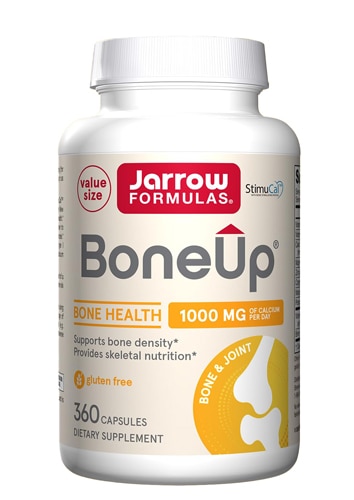Bone health is a hot topic, and for good reason. Bones form the skeleton of our bodies and allow us to move; they protect our organs; they even produce red and white blood cells. That’s a lot of important functions!
An adult human possesses 206 bones made up of calcium, phosphorus, sodium, collagen and other minerals. Unfortunately, poor bone health has become somewhat of an epidemic and can be hard to detect unless you are aware.
The National Osteoporosis Foundation reports that around 54 million Americans have poor bone density. Often the first sign of poor bone density is a fracture, and at that point, it becomes much more difficult to improve bone health.
Most of us know the bone-building benefits of nutrients like calcium and vitamin D; however there are also foods to limit in order to best support bone health. Let’s take a look at a few of these common dietary culprits.
1. Soda
Whether you call it soda or pop, these sugary beverages can contribute to poor bone health for a number of reasons. First, many sodas contain caffeine which is known to interfere with calcium absorption.
Additionally, cola-type sodas are high in phosphoric acid which may lead to decreased bone density as too much phosphorous has a negative impact on bones. Finally, a diet that includes soda is often lower in more nutritious beverages such as water or low-fat milk.
2. Carrots, sweet potatoes & beef liver
While these foods might not seem to have much in common, all three can be detrimental to bone health. They’re rich in vitamin A, a powerful antioxidant that help combat inflammation; however, this vitamin also increases the activity of cells called osteoclasts. These osteoclasts are responsible for breaking down bone, so excess vitamin A can contribute to a loss in bone density.
3. Alcohol
Consistent alcohol consumption can lead to a calcium imbalance, which will negatively impacts bones. Also, excessive alcohol increases parathyroid hormone which has been shown to decrease the body’s calcium reserves. For those who drink excessively over a long period of time, estrogen and testosterone may decrease which, in turn, reduces osteoblast function. Osteoblasts are responsible for building bone.
4. Beans & wheat bran
These two foods are traditionally associated with a healthy, balanced diet, so how can they play a role in poor bone density? Both beans and whole grains, including wheat bran, are high in antioxidant compounds called phytates that can bind to calcium and slow or prevent absorption.
While this can have a negative impact on bones, these foods both carry several health benefits so it’s best to reconsider when you’re consuming them rather than removing them all together. Try to eat calcium-rich foods or take a calcium supplement at least a couple hours before or after eating phytate-containing foods to reap the most benefits for your bones. Soaking dried beans in water for a few hours can also help remove some of the phytates.
5. High-sodium (fast/highly processed) foods
Many people are aware of the link between excess sodium and chronic conditions like hypertension. A diet high in sodium can also weaken bones. Sodium causes increased calcium excretion via the kidneys and research shows that as dietary sodium increases, we excrete more calcium in our urine leading to more porous bones.
Sodium also can interfere with calcium uptake into bones. Even moderately high sodium intake can exponentially increase bone loss over the span of several years so it’s important to stick with the American Heart Association’s recommendation of 2,300 mg of sodium per day unless otherwise directed by a physician.




